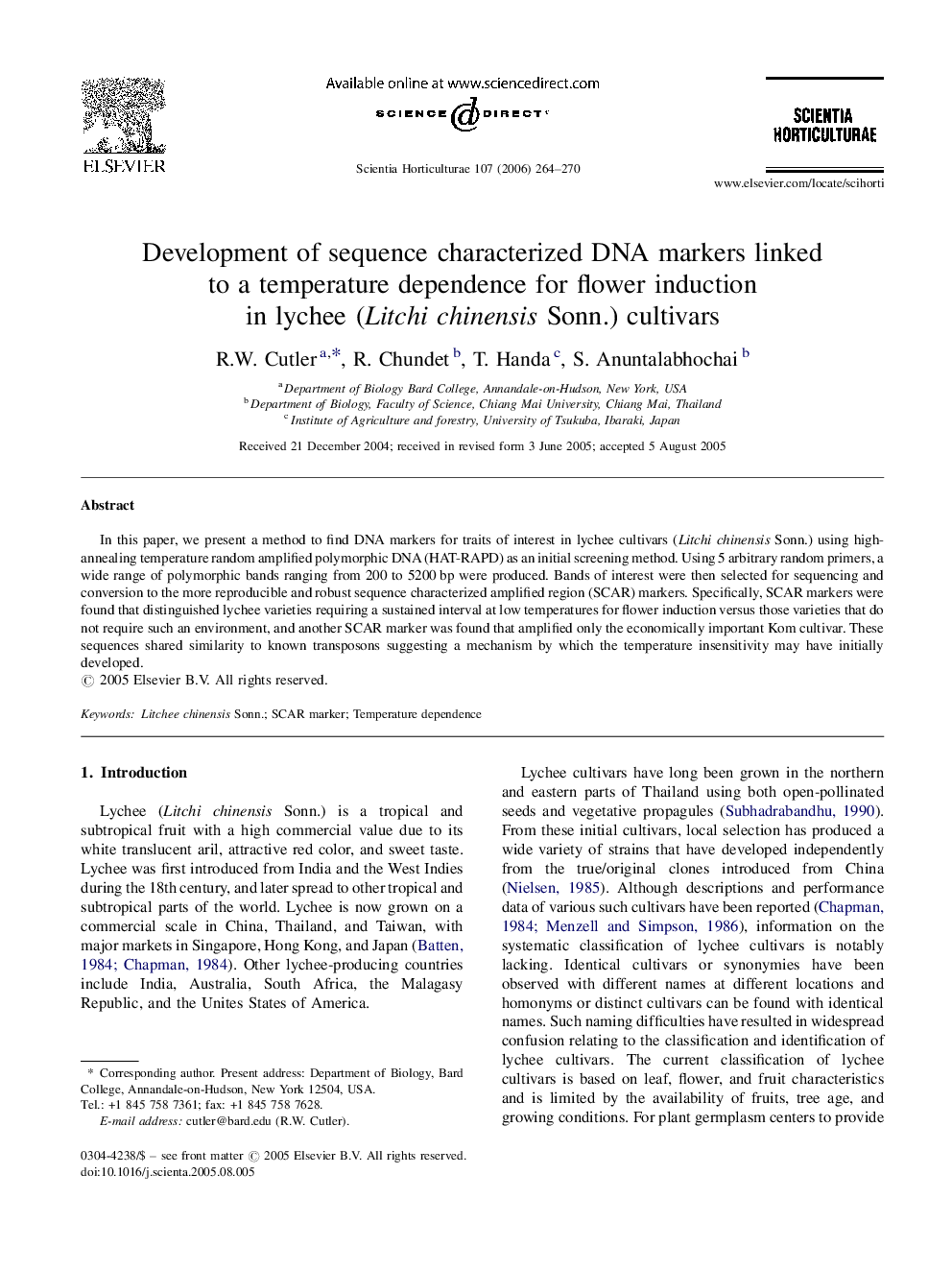| کد مقاله | کد نشریه | سال انتشار | مقاله انگلیسی | نسخه تمام متن |
|---|---|---|---|---|
| 4570081 | 1331370 | 2006 | 7 صفحه PDF | دانلود رایگان |

In this paper, we present a method to find DNA markers for traits of interest in lychee cultivars (Litchi chinensis Sonn.) using high-annealing temperature random amplified polymorphic DNA (HAT-RAPD) as an initial screening method. Using 5 arbitrary random primers, a wide range of polymorphic bands ranging from 200 to 5200 bp were produced. Bands of interest were then selected for sequencing and conversion to the more reproducible and robust sequence characterized amplified region (SCAR) markers. Specifically, SCAR markers were found that distinguished lychee varieties requiring a sustained interval at low temperatures for flower induction versus those varieties that do not require such an environment, and another SCAR marker was found that amplified only the economically important Kom cultivar. These sequences shared similarity to known transposons suggesting a mechanism by which the temperature insensitivity may have initially developed.
Journal: Scientia Horticulturae - Volume 107, Issue 3, 6 February 2006, Pages 264–270